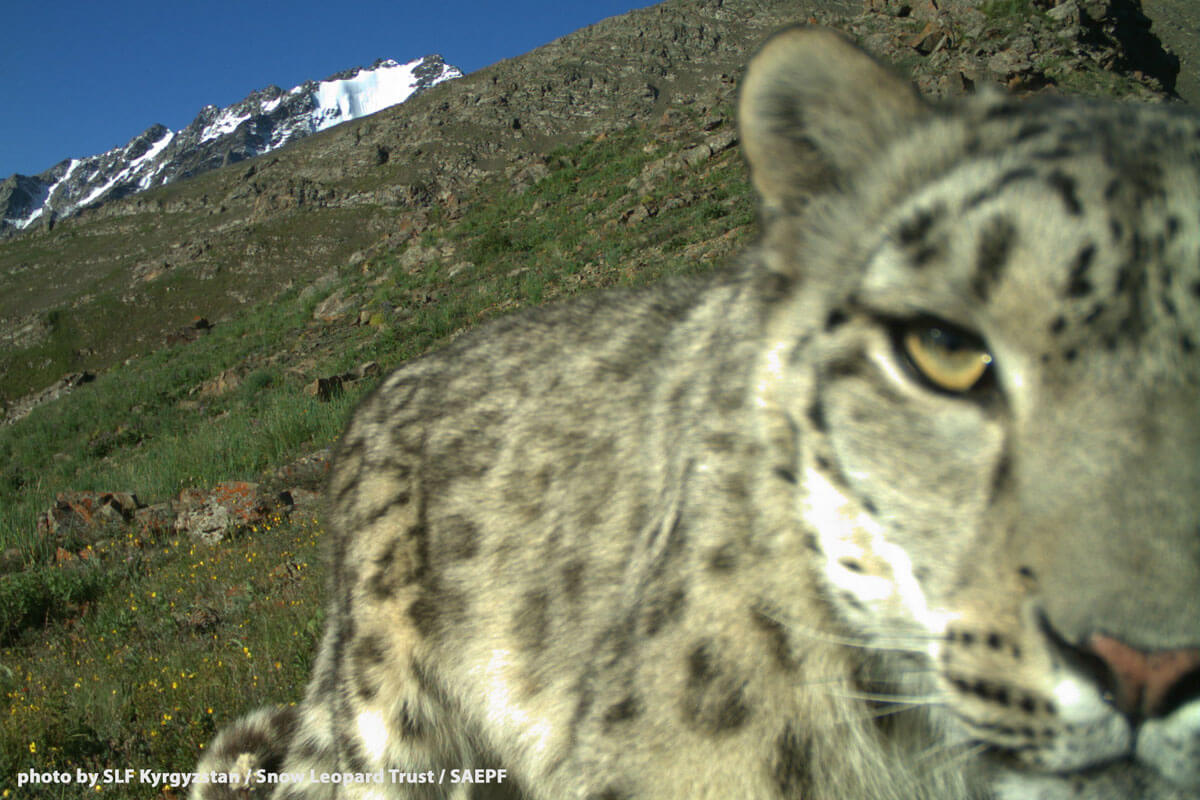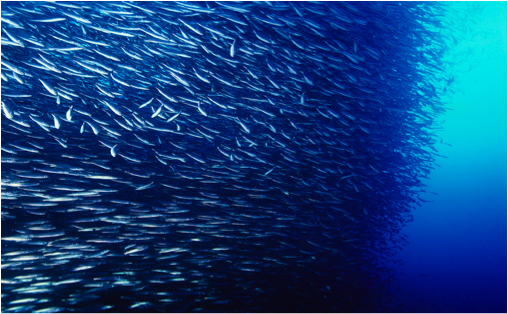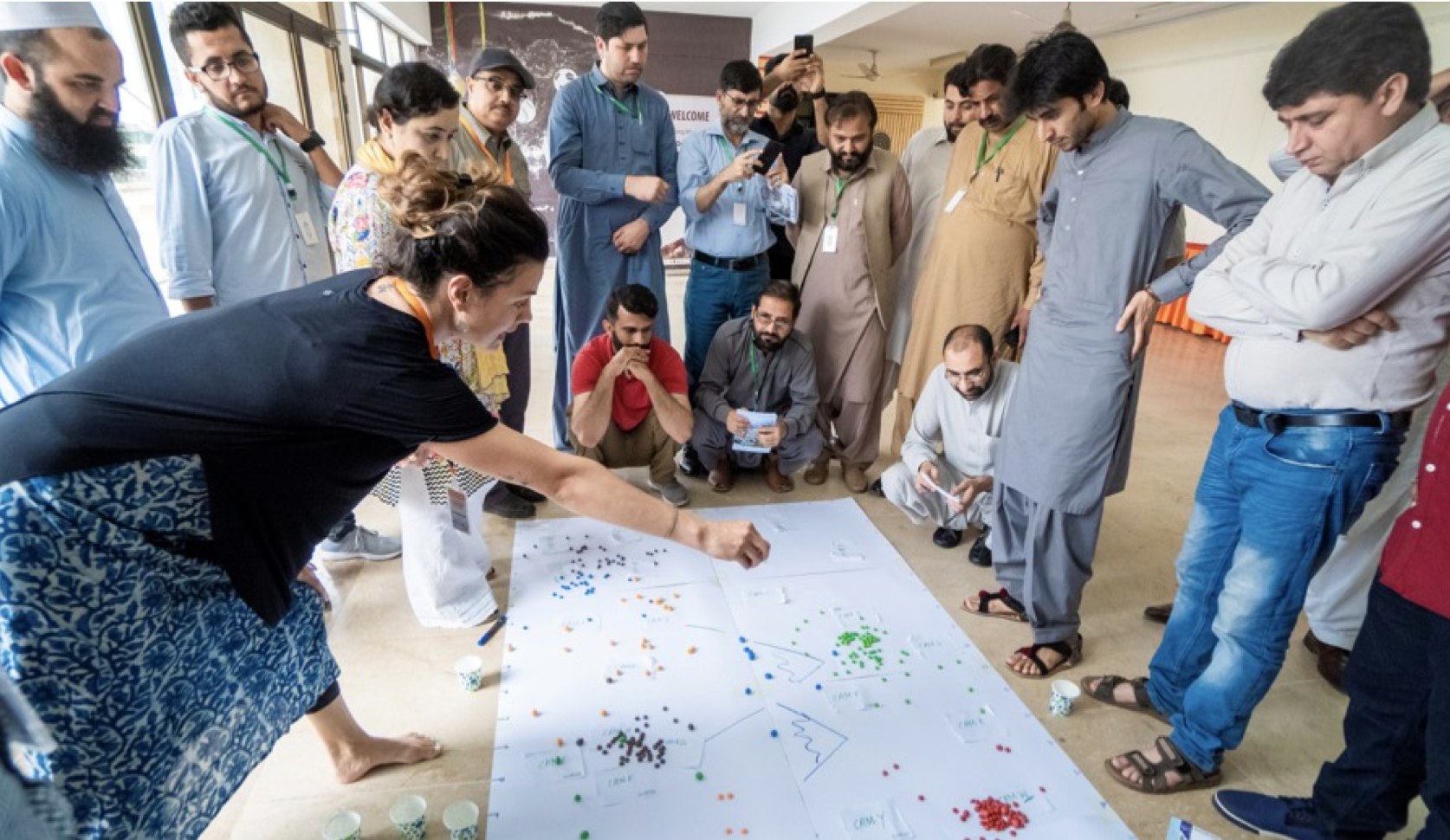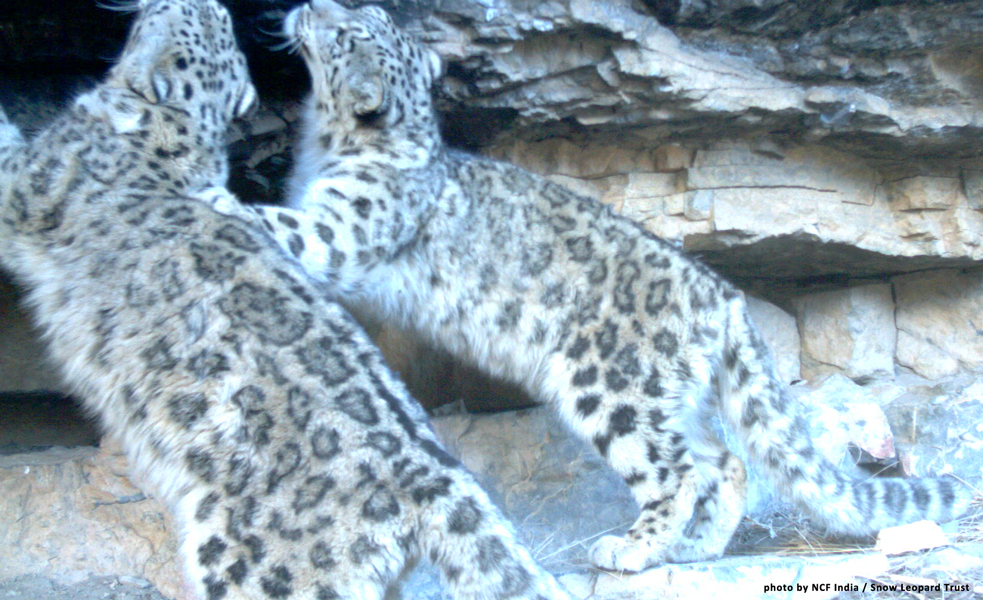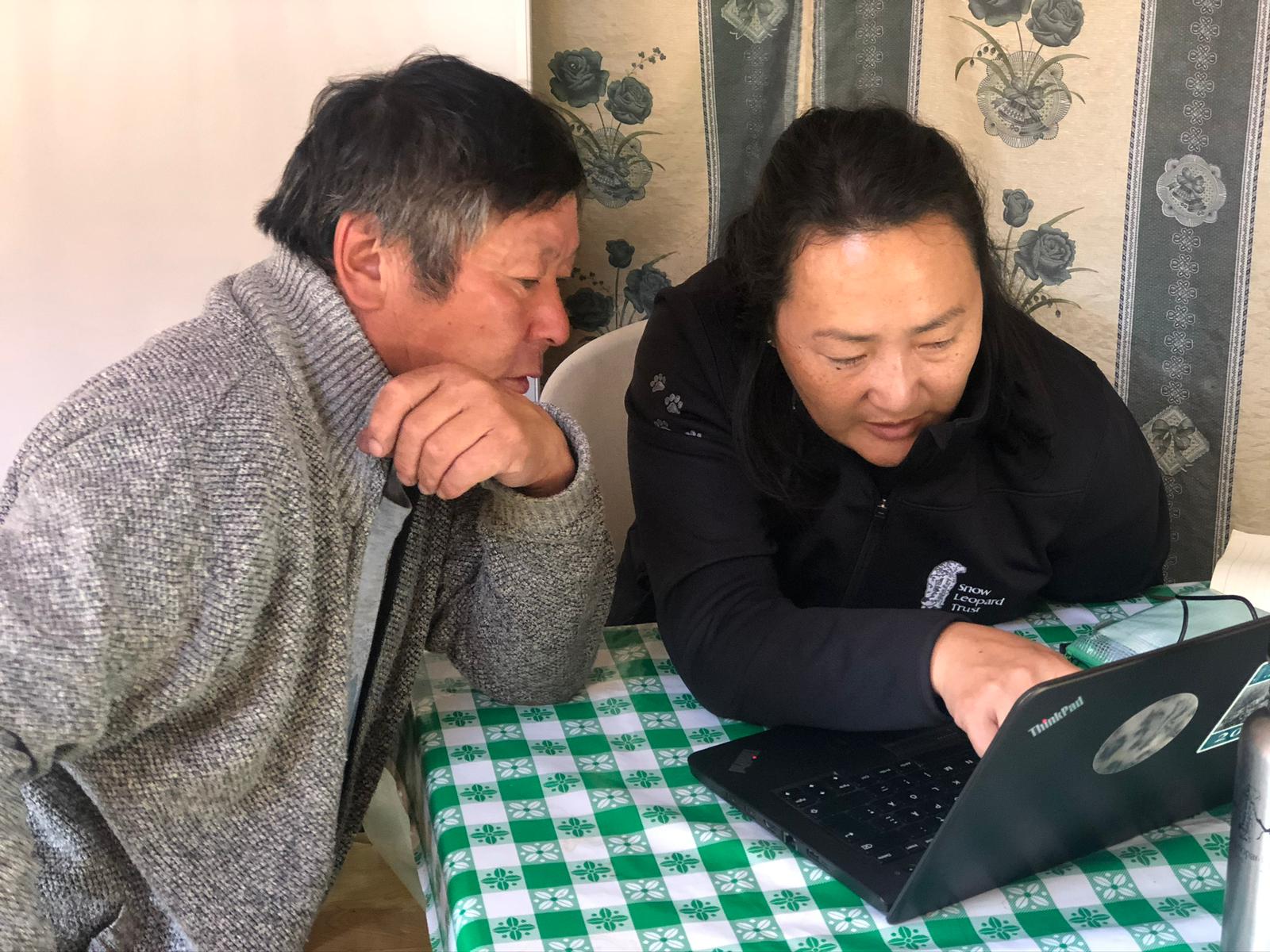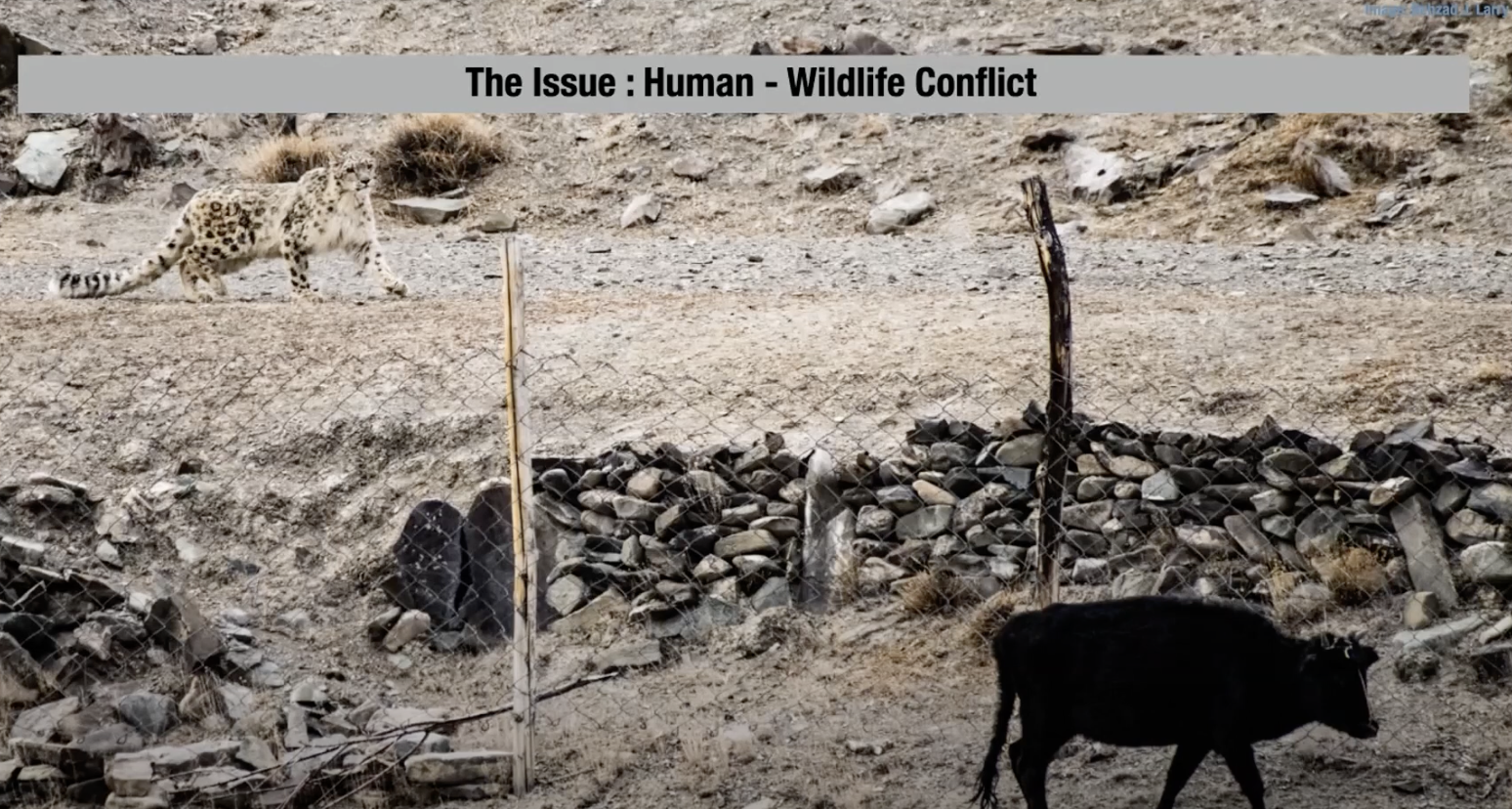Since 2020 the Snow Leopard Network has made a special effort to build and share capacities related to snow leopard research and conservation. The 2020 – 2021 SLN Training Initiative covered 15 modules with 372 participants joining the online sessions. This was possible thanks to the support of our partners who provided resources and leadership on critical snow leopard related conservation themes and tools.
2022 offers the opportunity to support teams working across the snow leopard range in leading additional training modules. We are pleased to announce the 2022 Call for Proposals for the Snow Leopard Training Grant which is designed to further strengthen snow leopard conservation and research, especially at the grassroots level. This is made possible through the generous support of the Pangje Foundation, an SLN member organization dedicated to protecting snow leopards and helping local communities.
The specific goal of the 2022 Training Grant centres around building capacities in snow leopard research and conservation among grassroot stakeholders. The scope of the capacity projects to be funded is broad and includes trainings/workshops in support of community conservation, protected area management (supporting local rangers and protected area staff etc.), conservation education, women conservation leadership training and wildlife population monitoring (snow leopard & prey). Other training and capacity building themes related to snow leopard conservation at the grassroots level will also be considered. Please note that the Training Grant available in 2022 is not designed for funding wider research or conservation projects in themselves but is specific to supporting Training or Workshop events.
Proposal Guidelines
Eligibility: The Training Grant is open to all SLN members and researchers/practitioners/organizations working to support snow leopard conservation. One proposal per applicant, team or organization will be considered. Unfortunately, current regulations do not allow this funding to be available for activities in the People’s Republic of China.
Grant size: Awards will range from $1000 to $1500. All award funds should plan to be used in 2022. Project proposals should aim to use these relatively modest amounts as strategically as possible. Other funding sources can be included in the budget to increase the overall project funding size.
Selection criteria: Proposals will be judged on a competitive basis. Applications will be evaluated by SLN’s Grant Review Panel, and judged on:
-
-
-
-
-
-
-
-
- Relevance to snow leopard conservation at the grassroots level
- Training methodology/philosophy
- Scientific and/or conservation rigor of the proposal
- Collaboration with local partners
-
-
-
-
-
-
-
Proposal Submission: Proposals (written in English) must be submitted electronically as a single pdf file to Rakhee Karumbaya, SLN’s Program Coordinator (rakhee@snowleopardnetwork.org). Proposals will be considered if received before 25th February, 2022 (18:00 Bishkek time). Applications that do not use the forms attached below will not be considered. The pdf file should include:
-
-
-
-
-
-
-
-
- an Application form completed (max. 3 pages, according to the attached form). Download the Application form here.
- a CV of the project team leader/principal applicant (max. 2 pages)
-
-
-
-
-
-
-
Reporting: A final report on the awarded projects (process and results) is due by December 15th, 2022. Please submit your final report as a Word document. Download the report outline here.
Time Schedule
25 February 2022: All Proposals submitted by email. Kindly note that we will not be able to consider late proposals.
End of March 2022: Proposals selected for funding by the SLN Grant Review Panel will be announced.
Mid April 2022: Funds available for disbursement.
Mid April – 1 December 2022: Projects take place as agreed in proposals.
15 December 2022: Grantees submit final report.


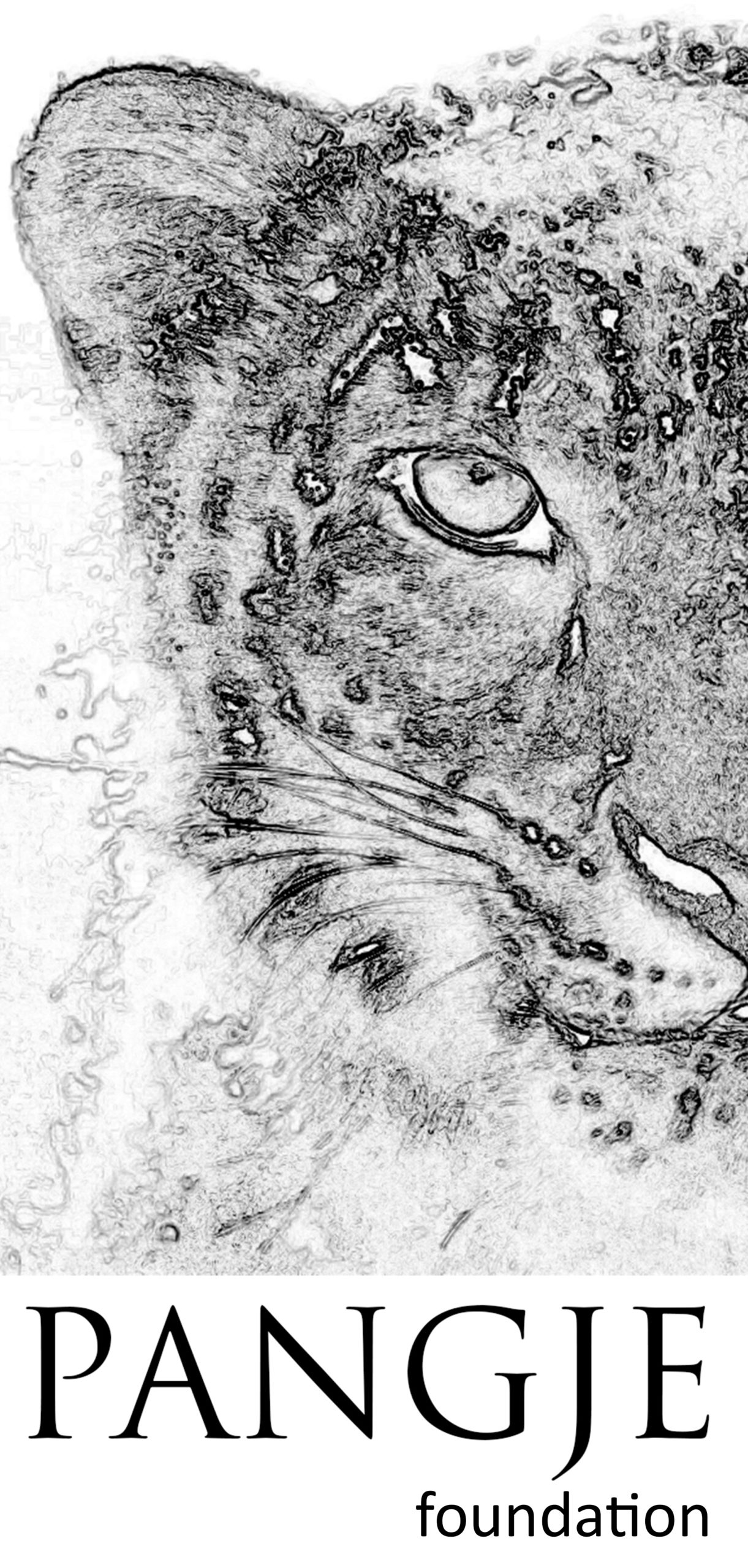














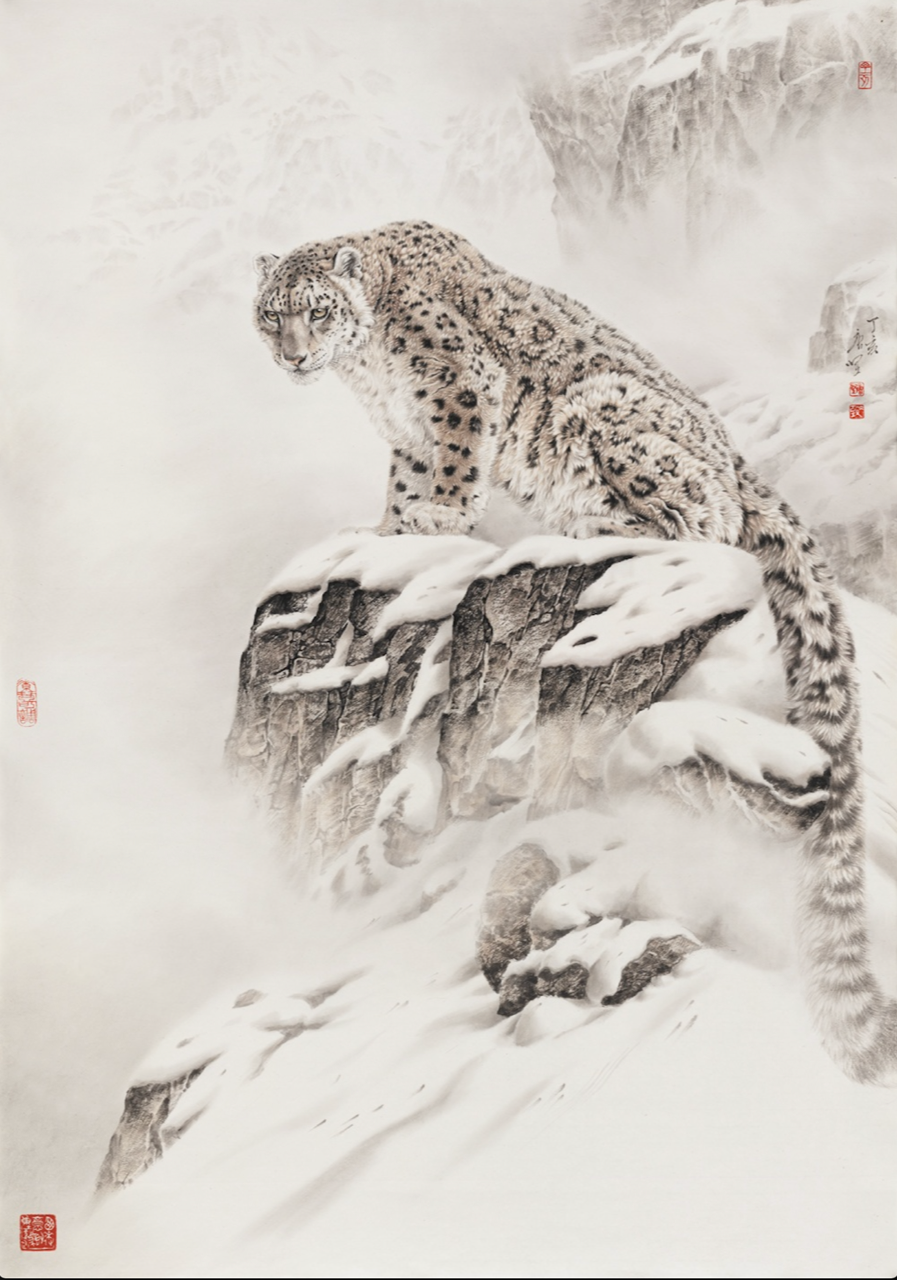 The Snow Leopard Network (SLN) is a worldwide network dedicated to facilitating the exchange of information and insights around snow leopards. It strives to “link up to scale up” efforts and thereby enhance the impact of snow leopard conservation investments.
The Snow Leopard Network (SLN) is a worldwide network dedicated to facilitating the exchange of information and insights around snow leopards. It strives to “link up to scale up” efforts and thereby enhance the impact of snow leopard conservation investments. 